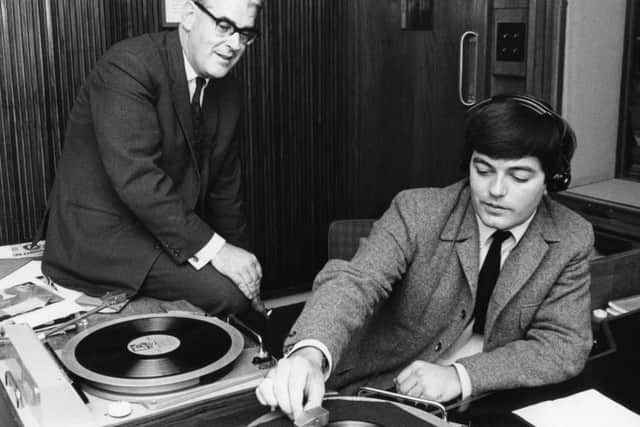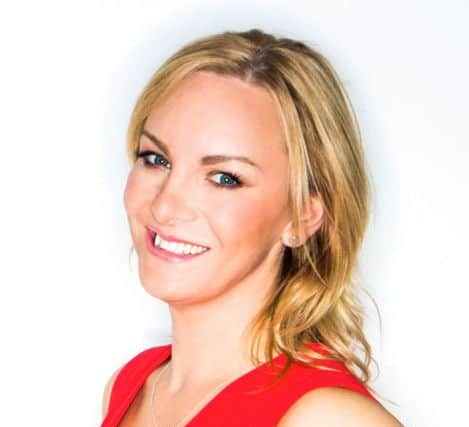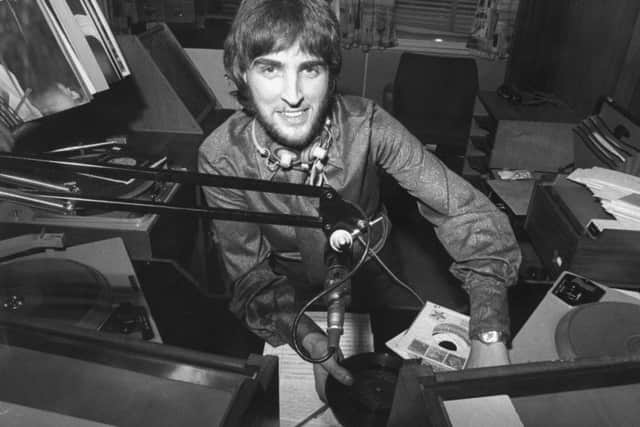Pop goes Yorkshire as Radio 1 turns 50
BBC Radio 1 marks its half-centenary today with a special broadcast by the disc jockey who spun the first disc back in 1967.
Tony Blackburn will partner the station’s current breakfast presenter, Nick Grimshaw, to recreate the original programme for a modern audience.
Advertisement
Hide AdAdvertisement
Hide AdBut Mr Blackburn’s name is his only northern virtue. The station’s list of 125 programme presenters throws up many from other parts of the north west but - with the exception of Chris Moyles, its longest-serving breakfast host - hardly any from Yorkshire.


The station went on air, at the Wilson government’s bidding, as the BBC’s answer to the closure of pirate stations like Radio Caroline the previous month.
Until then, pop music had been the province of the pirates and of legal offshore stations like Radio Luxembourg, and the BBC’s output had been confined to pockets of the Light Programme, which it renamed Radio 2.
“The BBC was late to the party as usual,” said Stephanie Hirst, a Yorkshire DJ on commercial radio, who was standing in for Mr Blackburn on a station in Kent yesterday while he prepared for his Radio 1 broadcast.
Advertisement
Hide AdAdvertisement
Hide AdA close friend of Moyles, with whom she worked at Radio Aire in Leeds, she said he had risen to the top by being “a great storyteller”, but that radio immortality depended mostly on being in the right place at the right time.


“Chris was the best of us kids - technically incredible and a great broadcaster,” she said.
“I don’t know why there haven’t been others from Yorkshire. Radio 1 has gone through periods where they’ve been very northern heavy - but it’s been people from the north west.
“Liz and Andy Kershaw both worked at Radio Aire and they had both been at Leeds University, but they’re from Lancashire, not Yorkshire.
Advertisement
Hide AdAdvertisement
Hide Ad“It’s just the luck of the draw, really. Getting on Radio 1 takes a bit of luck.”


Ms Hirst, who has worked at commercial stations in Sheffield, York and Hull and who for four years presented the national chart show on 250 stations, said her Barnsley accent had not stopped her getting work. But she said Radio 1 had been “too northern heavy” at the time when she might have been considered for a show there.
“There were far too many northerners on - Chris, Vernon Kay, Sara Cox. For a station that’s national you can’t be too northern.”
Richard Horsman, a broadcaster from Leeds who lectures in radio, said: “There have been some very successful Yorkshire people in radio - just not on Radio 1,”
Advertisement
Hide AdAdvertisement
Hide AdThe new station’s line-up in 1967 included, in addition to Mr Blackburn, the former crooner Jimmy Young, later to switch to Radio 2, and Keith Skues who left in 1974 to run Yorkshire’s first commercial station, Radio Hallam in Sheffield.


Many of the original presenters, including Kenny Everett and Johnnie Walker, had jumped ship from the pirate stations when the postmaster-general, Tony Benn, saw through the Marine Offences Act that forced them off air.
Radio 1 was billed in Radio Times as “the swinging new radio service”, but its broadcasts were limited initially to a single frequency on the medium wave and to certain hours of the day. At other times it shared programmes with Radio 2.
Nevertheless, it soon became the most popular station in the world, and it its peak in the 1970s it had audiences of 10m, rising to 20m for the shared programmes.
Advertisement
Hide AdAdvertisement
Hide AdHowever, by the 1990s its audience had grown older and it had become the butt of jokes by TV comedians like Harry Enfield - prompting the resignations of Simon Bates and other DJs.
Ms Hirst said: “Radio 1 is a youth station and the presenters have identify with the audience they are targeting.”
Comment: Page 14